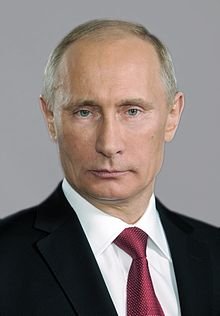Russia's 'invulnerable' nuclear missile ready to deploy, Putin says
CNN/Stylemagazine.com Newswire | 12/27/2018, 9:23 a.m.
By Brad Lendon, CNN
(CNN) -- Russia's new hypersonic missile system, which President Vladimir Putin claims is "invulnerable" to US defenses, will enter service in 2019, the Russian leader said after a test of the missile Wednesday.
"Russia is the first in the world to receive a new type of strategic weapon and this will reliably ensure the security of our state and of our people for decades to come," Putin said, according to the state-run Tass news service.
"This is a wonderful, excellent gift for the country for the New Year," Tass quotes Putin as saying.
The Avangard hypersonic system was tested from the Dombarovsky military airbase in southwest Russia, according to Tass.
Earlier reports say the Avangard has intercontinental range and the ability to fly as fast as Mach 20, more than 15,000 miles per hour.
As it closes in on its target, the missile with a maneuverable gliding warhead can adjust both altitude and direction to avoid defenses and fly low enough to avoid most interceptors, Tass has reported.
"It will be practically invulnerable," Putin said when he boasted of the Avangard during a March address to the Russian Parliament.
While there was no immediate Pentagon or State Department comment on Putin's announcement Wednesday, a US official expressed doubt to CNN about the weapon systems which Putin talked about in March, saying they were not close to operational.
Analysts, too, caution that Russian boasts of new military capabilities are often not backed up in reality.
"Limited funding and other defense industrial resources have also threatened a variety of other Russian strategic and non-strategic military modernization efforts," Joseph Trevithick, a fellow at GlobalSecurity.org, wrote on The War Zone blog. "It remains to be seen just how rapidly the Kremlin can actually get its new hypersonic weapon into service and to what degree."
But Putin's announcement Wednesday indicates Moscow is still pursuing weapons systems that give the Pentagon pause for thought.
Gen. John Hyten, the four-star head of US Strategic Command, warned in March the current generation of US missile-detecting satellites and radars won't be capable of spotting weapons such as the Avangard.
"We are going to need a different set of sensors in order to see the hypersonic threats," Hyten told CNN at the time.
The geopolitical intelligence website Stratfor, in a post earlier this year, describes hypersonic weapons as destabilizing.
"These missiles will trigger a new arms race for offensive superiority," Stratfor says.
It also says hypersonic weapons encourage first strikes because they leave an opponent little time to consider options.
"Shorter reaction times and lack of adequate defenses will make preemptive strikes more attractive," according to Stratfor.
Besides Russia, the US and China have been working on hypersonic weapons.
Beijing says it successfully tested a hypersonic aircraft in August, flying its Starry Sky 2 vehicle at Mach 6. It did not say what plans it has for hypersonic technology other than to contribute to its aerospace industry.
The US Air Force earlier this year awarded a $928 million contract to Lockheed Martin to develop a hypersonic missile.
Meanwhile in December, US Undersecretary of Defense for Research and Engineering Michael D. Griffin told reporters the US could have a "workable defensive capability" against hypersonic weapons by the middle of the next decade.
Moscow's Avangard announcement comes less than a month after Washington said it would stop adhering to a decades-old nuclear treaty in 60 days unless Russia returns to compliance with it.
The 1987 Intermediate-Range Nuclear Forces (INF) Treaty forced both countries to eliminate ground-launched ballistic and cruise missiles with ranges between approximately 300 and 3,400 miles.
The US says specifically that Russia violated the INF when it developed and fielded the 9M729 missile system in 2017. Russia denies violating the pact.
The intercontinental-range Avangard would not have been covered by the INF. But Wednesday's announcement seems likely to be another thorn in increasingly prickly US-Russia relations.
Speaking in early December, US Secretary of State Mike Pompeo said Russia's alleged violation of the INF Treaty was part of a wider web of destabilizing behavior, including Moscow's recent clash with Ukraine in the Kerch Strait.
"These violations of the INF treaty cannot be viewed in isolation from the larger pattern of Russian lawlessness on the world stage," Pompeo declared. "The list of Russia's infamous acts is long: Georgia, Ukraine, Syria, election meddling, Skripal and now the Kerch Strait, to name just a few."




